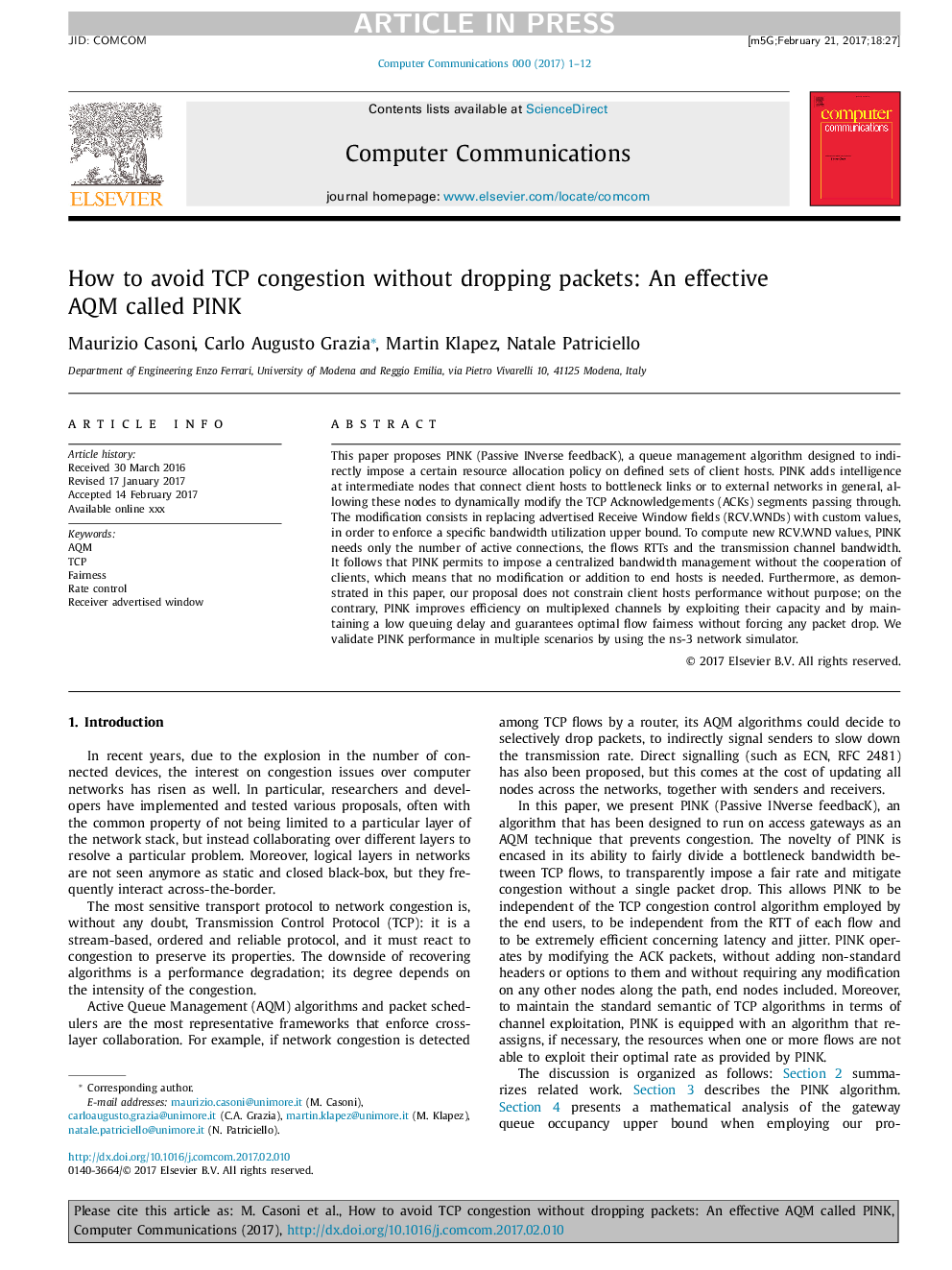| Article ID | Journal | Published Year | Pages | File Type |
|---|---|---|---|---|
| 4954372 | Computer Communications | 2017 | 12 Pages |
Abstract
This paper proposes PINK (Passive INverse feedbacK), a queue management algorithm designed to indirectly impose a certain resource allocation policy on defined sets of client hosts. PINK adds intelligence at intermediate nodes that connect client hosts to bottleneck links or to external networks in general, allowing these nodes to dynamically modify the TCP Acknowledgements (ACKs) segments passing through. The modification consists in replacing advertised Receive Window fields (RCV.WNDs) with custom values, in order to enforce a specific bandwidth utilization upper bound. To compute new RCV.WND values, PINK needs only the number of active connections, the flows RTTs and the transmission channel bandwidth. It follows that PINK permits to impose a centralized bandwidth management without the cooperation of clients, which means that no modification or addition to end hosts is needed. Furthermore, as demonstrated in this paper, our proposal does not constrain client hosts performance without purpose; on the contrary, PINK improves efficiency on multiplexed channels by exploiting their capacity and by maintaining a low queuing delay and guarantees optimal flow fairness without forcing any packet drop. We validate PINK performance in multiple scenarios by using the ns-3 network simulator.
Keywords
Related Topics
Physical Sciences and Engineering
Computer Science
Computer Networks and Communications
Authors
Maurizio Casoni, Carlo Augusto Grazia, Martin Klapez, Natale Patriciello,
